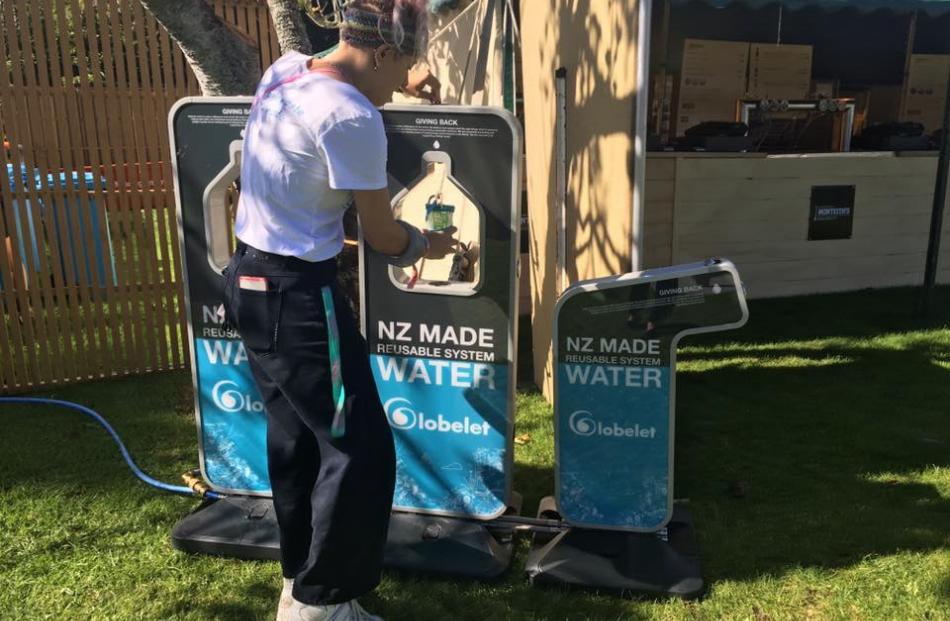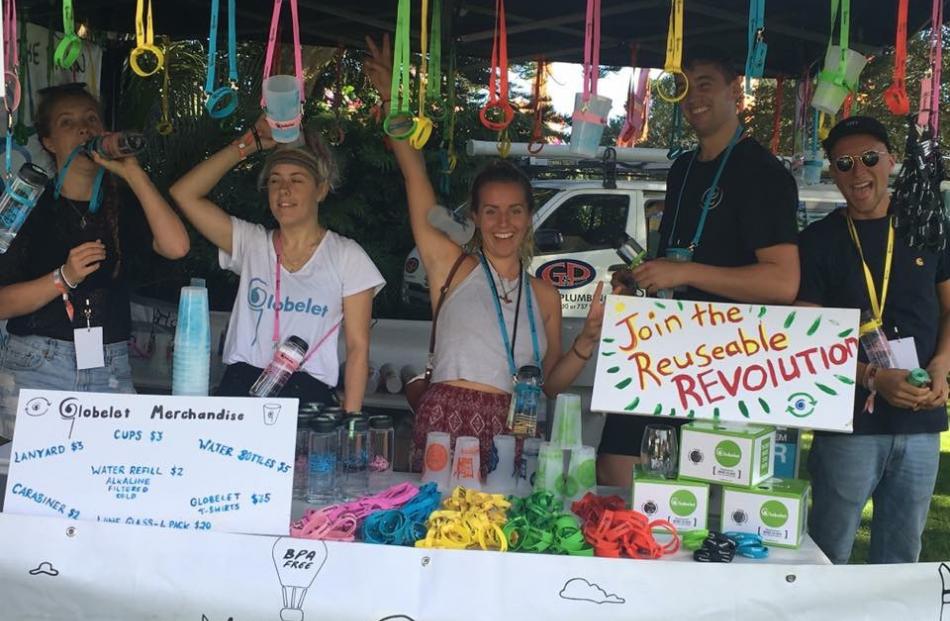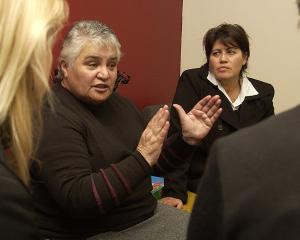An end to waste would be cause for celebration. At Womad they’ve got the party started, writes Gina Dempster.

Last weekend I was lucky enough to go to the Womad festival in New Plymouth. Getting three families and a truck-load of camping gear there from Wanaka felt at times like trying to organise a world-conquering expedition. But it was all worth it once we walked into beautiful, bush-clad Pukekura Park lit up with fairy lights and heard the music vibrating around the park. With 12,000-plus festival goers, it was like being in a magical music town for the weekend.
And like any town, especially one full of food stalls, there is potentially a lot of waste to deal with. I was trying to think about music, not waste, but I couldn’t help notice the huge bright yellow recycling station as I soon as I walked in, especially as it had "Zero Waste" written all over it in big letters.
The concept of zero waste was framed in New Zealand in 2000, and has been adopted by different organisations and countries around the world. That’s pretty cool, that New Zealand has been a world leader in thinking about how we can live without waste. Zero waste has been challenged as unattainable, but just because something is difficult, doesn’t mean it’s not worth aiming for.
It’s true that zero waste is an aspirational goal. To truly send nothing to landfill means more than just recycling and composting waste. It requires a paradigm shift in thinking so that waste is designed out of the system.
Our society has ended up in a make-use-dispose model. A zero waste system firstly designs waste out as much as possible and then captures used resources to make new products.
Suzanne Porter, chief executive of Womad, says zero waste is inspiring for Womad, rather than intimidating.
"Zero waste is a powerful concept that challenges old ways of thinking and inspires new attitudes and behaviour. The multifaceted approach integrates the four Rs of waste minimisation: reduce, reuse, recycle and rethink, to conserve the earth’s limited resources."
Womad has reduced its festival waste by 85% since the first New Plymouth Womad was held in 2003.
Statistics don’t always give you the full picture though. This year Womad decided to no longer sell single-use drink bottles. It probably made very little difference to their official "waste to landfill" statistics, because most of the single-use drink bottles would have been recycled at past festivals. But it made a massive difference to the number of disposable bottles used, saving resources, energy and time.
Instead of single-use water bottles, highly visible drinking fountains were set up around the festival at which you could fill your own bottle. If you didn’t have your own, for a $5 deposit you could buy a refillable Globelet bottle. At the end of the festival, you could get your deposit back or keep the bottle. The weather was hot and sunny, so water was in high demand.
Globelet founder Ryan Everton says 20,000 litres of water was used to refill bottles during the festival, saving about 40,000 disposable bottles. That’s a mind-boggling number of bottles saved from being made, used, and transported around the world to be recycled. It really demonstrates why reuse comes before recycle in the waste hierarchy (reduce, reuse, recycle) because although recycling is a good thing to do, reuse is better.
Unfortunately, (or on second thoughts, fortunately, for the positive vibe), there were no free beer taps. But there was a great container deposit system in place for the beer cups, also made by Globelet. For a deposit of $3, you bought a cup that could be refilled or returned for a refund. For a couple of dollars more, you got a handy carabiner system with which to attach your cup to your person for hands-free dancing.
Dunedin can be proud because Globelet is a company founded in Dunedin, with the stadium being its first venue. It now supplies 500 events in Australia and New Zealand. Cups and bottles from each event are washed and stored at the factory in Christchurch, and then used again at the following year’s event. Any broken items can be recycled, although as they’re pretty tough, that’s rare.
It’s a great example of reducing waste by rethinking the way that stuff (water or beer) can be distributed. At this year’s Womad, there were 10,000 Globelet cups in circulation, which Ryan estimates saved 50,000-70,000 single-use beer cups. The whole container deposit system worked perfectly and meant there was scarcely any litter lying around, even at the end of the night.
The team in charge of waste and recycling had ticked all the boxes to minimise waste to landfill. Womad is famous for its selection of food stalls, and all the stallholders were using compostable takeaway containers and cutlery. Food waste and the takeaway containers went into a composting bin at the zero waste station. The 150 zero waste crew from social enterprise Beyond the Bin did a great job of helping people to put their waste into the right bin, and picking up any litter that was dropped.
One of the biggest waste streams is still the good old single-use coffee cup. Reusable coffee cups were on sale at the festival, but most people were still using single-use coffee cups. They can be composted, but do we really need them? Here’s hoping they may be the next disposable item to be tackled by some creative zero-waste thinking.
Like a town, how well the waste minimisation and recycling systems work depend ultimately on the public. Maybe that’s where Womad has an advantage over many other events. With a (how should I put this) mature crowd and a stunningly beautiful venue, people made the effort to use the right bins and pick up their litter. Even the festival campsite, usually a magnet for waste at events, seemed to be relatively clean and tidy when I left.
As for me, I hardly thought about waste the whole weekend! Someone else had done all the thinking and made it easy to do the right thing, even being able to compost the food scraps from our campsite. Which left me free to enjoy the amazing music, delicious food, fun companions and beautiful bush setting. Thanks Womad, I’ll be back.Gina Dempster is communications officer at Wanaka Wastebusters.
Each week in this column, one of a panel of writers addresses issues of sustainability.















